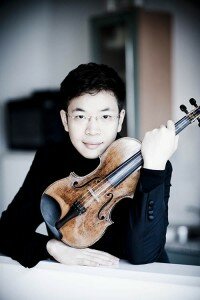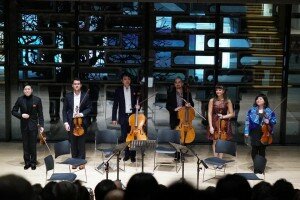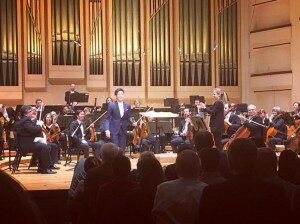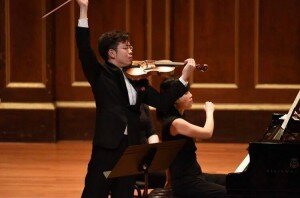‘Music Communicates Without Words’
Taiwanese-born violinist Paul Huang is now based in New York, having moved there aged 12 to study at the Juilliard School’s pre-college programme. Now at the age of 28, having picked up awards including an Avery Fisher Career Grant, and the Lincoln Centre Award for Emerging Artists, he is becoming one of the most sought-after young violinists of his generation.

© Marco Borggreve
‘At the same time, I was like a little sponge, trying to learn as much as I possibly could, both in school and personally. It was a very exciting time in my life.’

© https://scontent.fhkg4-1.fna.fbcdn.net
The difference Paul felt between the styles of teaching in his native Taiwan against his New York surroundings was also felt: ‘When I was growing up in Taiwan, you just do exactly what the teacher tells you to do and you will be just fine – you will get good grades, go to a good college… the idea of thinking, of asking questions, is not very common in Asian culture,’ he remarks.

© https://scontent.fhkg4-1.fna.fbcdn.net
‘Perhaps that was one of the big lessons I learned from all of them. I learned that you start to be more aware of yourself and what’s going on around you. You teach yourself, and I think that’s a wonderful lesson. I think there’s a fine balance, and I feel lucky that I have the education of both. If you only think very creatively and lose the discipline that’s not going to work, but if you only have discipline without some sort of creativity that doesn’t work either.’
Although he doesn’t privately teach, Paul often gives masterclasses and school visits on his travels. Music education is something he is incredibly passionate about, he himself having been inspired by the sound of the violin at a young age.

© https://scontent.fhkg4-1.fna.fbcdn.net
Paul started playing the violin at the age of 7 – ‘It’s considered relatively late for violinists,’ he laughs. Before that, he played the piano and the organ, and was taken to concerts regularly by his parents who, while not musicians themselves, were self-proclaimed music lovers, and Paul remembers falling in love with the violin at a recital that his parents took him to.
‘At that moment, I was completely struck by the sound of the violin, of this little wooden box producing such glorious music, and a voice that’s very human somehow.
‘Also just the idea of being on stage, sharing something without using words, this was something that was very attractive to me. As a kid, I didn’t speak a lot, and I didn’t enjoy speaking a lot. Using the violin as a way of communication was something that was extraordinary to me. I realised I didn’t need to use words and people would still listen to me. That was kind of a revelation, and made me also realise the power of music at that very early age, how music communicates without words.’




